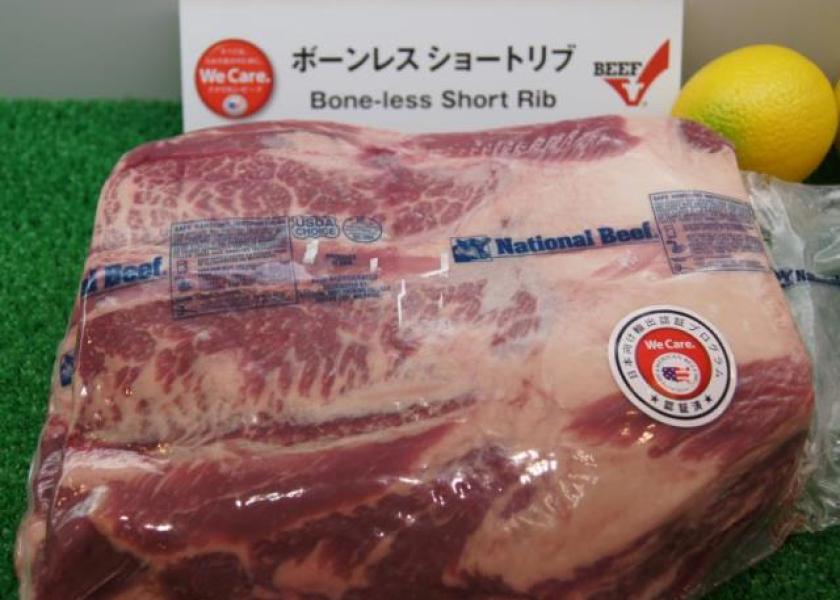Cheaper U.S. Beef Seen Curbing Asian Demand for Australian Meat

Asian consumers are set to buy more U.S. beef this year as demand shifts away from more expensive Australian supply, according to the U.S. Meat Export Federation.
Japan, Asia’s largest beef importer, will likely be the region’s fastest-growing market for U.S. meat this year, with imports seen rising 9 percent, Chief Executive Officer Philip Seng said in an interview in Tokyo on Thursday. Sales to South Korea and Taiwan will also expand, he said.
“We have more supplies, and our prices are coming down,” Seng said. “There is less Australian product coming into the market. As their prices come up, we are staying somewhat competitive with Australia.”
Australia’s beef exports are set to drop almost 9 percent in the year starting July 1 as herd rebuilding reduces cattle and calf slaughter, the government predicts. The country’s Eastern Young Cattle Indicator, a measure of prices at auctions in the east, surged more than 38 percent in the past year while cattle futures in Chicago lost 10 percent. U.S. meat production will increase this year for the first time since 2010, according to the U.S. Department of Agriculture.
The U.S. was the world’s fourth-biggest beef and veal exporter last year and Australia was the second largest. Live cattle for June delivery were little changed at $1.307 a pound on the Chicago Mercantile Exchange. After touching a record $1.7275 in November 2014, futures plunged 16 percent last year, the biggest drop since 1981.
Conditions surrounding U.S. exporters are improving as the yen has climbed 8.4 percent against the dollar this year, making American beef more affordable to Japanese consumers, according to Seng. Falling grain costs also help lower meat prices, Seng said. Chicago wheat futures fell to a more than five-year low this month, while corn and soybeans posted third straight annual declines in 2015.
Beef imports by Japan fell 4.7 percent to 495,419 metric tons last year, according to Japanese government data, as a weak yen boosted the costs of importing. Purchases from Australia rose 3 percent to 289,632 tons in 2015, as Japan cut import tariffs in line with a bilateral trade agreement.







